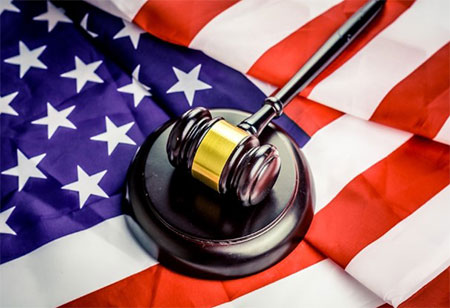The Surprising Traits a Trial Attorney Needs to Stand Out
By Vishal Pathak, content writer
 It’s easy to assume that any personal injury claim you bring against someone will result in them settling out of court. Most defen- dants and insurance com- panies don’t want a len- gthy, drawn-out legal ba- ttle. Negotiations and me- diation occur, resulting in the victim receiving a pay- out to cover their accident or illness-related costs.
It’s easy to assume that any personal injury claim you bring against someone will result in them settling out of court. Most defen- dants and insurance com- panies don’t want a len- gthy, drawn-out legal ba- ttle. Negotiations and me- diation occur, resulting in the victim receiving a pay- out to cover their accident or illness-related costs.
That’s the most desirable outcome that many per- sonal injury lawyers aim for. Still, some cases will go to trial. When they do, you want a competent trial lawyer by your side. Not all personal injury lawyers are. If your chosen lawyer has these traits, there’s every reason to believe they’re suitable for your trial needs.
Experience
A newly-qualified trial attorney deserves a chance to show their capabilities. Still, experience counts for a lot when you’re seeking a favorable outcome. Experience trial attorneys like Schuerger Shunnarah Trial Attorneys in Dallas have years of experience attending trials and achieving excellent results for their clients.
Experience comes through attending many trials, reviewing their results critically, and constantly making changes to benefit them and their clients. Don’t be afraid to ask your preferred lawyer how much experience they have in the courtroom to know whether they’re right for you.
Communication Skills
Experienced U.S. district court judge Mark W. Bennett, a professor at the Drake University School of Law, wrote in a 43-page review that most lawyers don’t communicate effectively with jurors. He even said he was shocked that those with the courage and perseverance to get through law school still lacked the art of persuasion to be great trial lawyers.
Being an effective communicator is an essential skill for any new or experienced trial attorney. This skill enables them to use persuasion and speak clearly while translating legalese into language that juries and those in the courtroom can understand. If you can’t understand the legal language your lawyer uses before entering the courtroom, you can’t assume a jury will, either.
Negotiation Skills
It’s rarely too late to negotiate a deal before a trial. Even once a case goes to trial, there’s often time for a settlement. The best trial attorneys understand that and flex their negotiation muscles just in case the stress of a trial can be avoided. Part of being an excellent negotiator involves being well-informed about cases and the law. It can also be about maximizing leverage to get what you want.
Writing Skills
Many lawyers think they can leave their academic writing skills back in law school when they finally graduate and become a lawyer. However, writing skills can be crucial for being a good trial lawyer.
Going to trial often means persuading a judge to rule in your favor. This can involve them having clear documents with easy-to-follow legal concepts before the trial begins. If your lawyer can’t describe clear legal concepts on paper, you and other future clients might be disadvantaged in the courtroom.
Many personal injury attorneys make great trial lawyers, but not all of them do. These are some of the many important traits to look for when hiring a lawyer. The outcome of your case might just depend on them.




